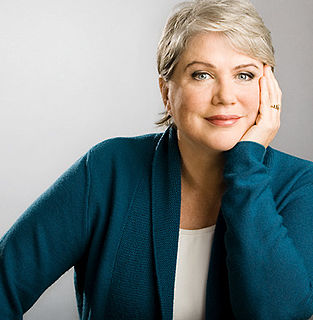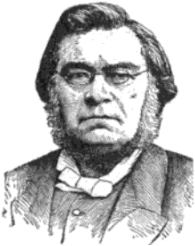A Quote by Rebecca Goldstein
In fact, the answers that religion, as we have come to know it, provides to the question of human worth have played so dominant a role in the preceding centuries that believers often cannot conceive how non-believers can muster sufficient commitment to their own lives to get out of bed each morning, let alone the ethical wherewithal to regard others as deserving of moral regard. Once one "comes out" as an atheist, these are the inquisitions to which one is often subjected.
Related Quotes
The Gospel of Life is not for believers alone: it is for everyone. The issue of life and its defense and promotion is not a concern of the Christian alone. Although faith provides special light and strength, this question arises in every human conscience which seeks the truth and which cares about the future of humanity. Life certainly has a sacred and religious value, but in no way is that value a concern only of believers. The value at stake is one which every human being can grasp by the light of reason; thus it necessarily concerns everyone.
Believers are often encouraged to spend some time each day alone praying and reading the Bible. This is a good thing, modeled by Jesus himself. But too often people view this time with God as sufficient, and as separate from the rest of their lives; they essentially leave Jesus on their bedside table and ignore him the rest of the day. This is a far cry from the ongoing walking in the Spirit, abiding in Christ, persevering, praying, and rejoicing presented in Scripture.
Yes, believers and non-believers and skeptics can all live together and get along. But there cannot be an imperialistic imposition of religion by the state or by the church. All people must be equal--believers, skeptics, disbelievers, atheists, and those who chose religion. Unless we are all deemed equal, and unless the morality of disbelief is deemed the equivalent of the morality of belief, we will simply be tolerated, and that is not the American way.
Men live a moral life, either from regard to the Diving Being, or from regard to the opinion of the people in the world; and when a moral life is practised out of regard to the Divine Being, it is a spiritual life. Both appear alike in their outward form; but in their inward, they are completely different. The one saves a man, but the other does not; for he that leads a moral life out of regard to the Divine Being is led by him, but he who does so from regard to the opinion of people in the world is led by himself.
What I feel I can do is help people become aware of how pervasive and extensive the arts are, how they affect each one of us in our daily lives—what kind of [buildings] we live in, what kind of clothes we wear, what we see with our eyes. We are often blind to the beautiful things around us. What I'm mostly concerned about is how often we're blind to our own talent. I think that within each human being there is a creative spirit, and some of us have been fortunate enough to have good teachers and parents who've brought this out and encouraged it, but others haven't.
It's fantastic to believe, because they get so many benefits. I get mad at the atheist community when they put down believers because they put down religion so much. Now I am an atheist, but I don't like to describe myself with that term. I prefer secular humanist. But I do see first hand how beneficial religion is, for example if you are a refugee getting in a boat to take you across the Mediterranean, a belief in God is an advantage. I completely understand that comfort.
Over the centuries, we've moved on from Scripture to accumulate precepts of ethical, legal and moral philosophy. We've evolved a liberal consensus of what we regard as underpinnings of decent society, such as the idea that we don't approve of slavery or discrimination on the grounds of race or sex, that we respect free speech and the rights of the individual. All of these things that have become second nature to our morals today owe very little to religion, and mostly have been won in opposition to the teeth of religion.
The lack of brotherhood among believers themselves has paralyzed the church in front of the skepticism and immorality of the world; but when we go back in simple faith to the one great fact of our redemption, we shall be both brought into closer fellowship with each other, and stimulated to more tender regard for the salvation of men.
We have been living amidst one of the great revolutions of human history, and we hardly know it: the penetration of the State into every aspect of human life and society. Some people regard this as good and "progressive," others regard it as tyrannical; but either way, it's a fact, a transformation as great as, say, the Industrial Revolution. Absolutely nothing is now beyond the scope of State power.
I regard monotheism as the greatest disaster ever to befall the human race. I see no good in Judaism, Christianity, or Islam - good people, yes, but any religion based on a single, well, frenzied and virulent god, is not as useful to the human race as, say, Confucianism, which is not a religion but an ethical and educational system.







































